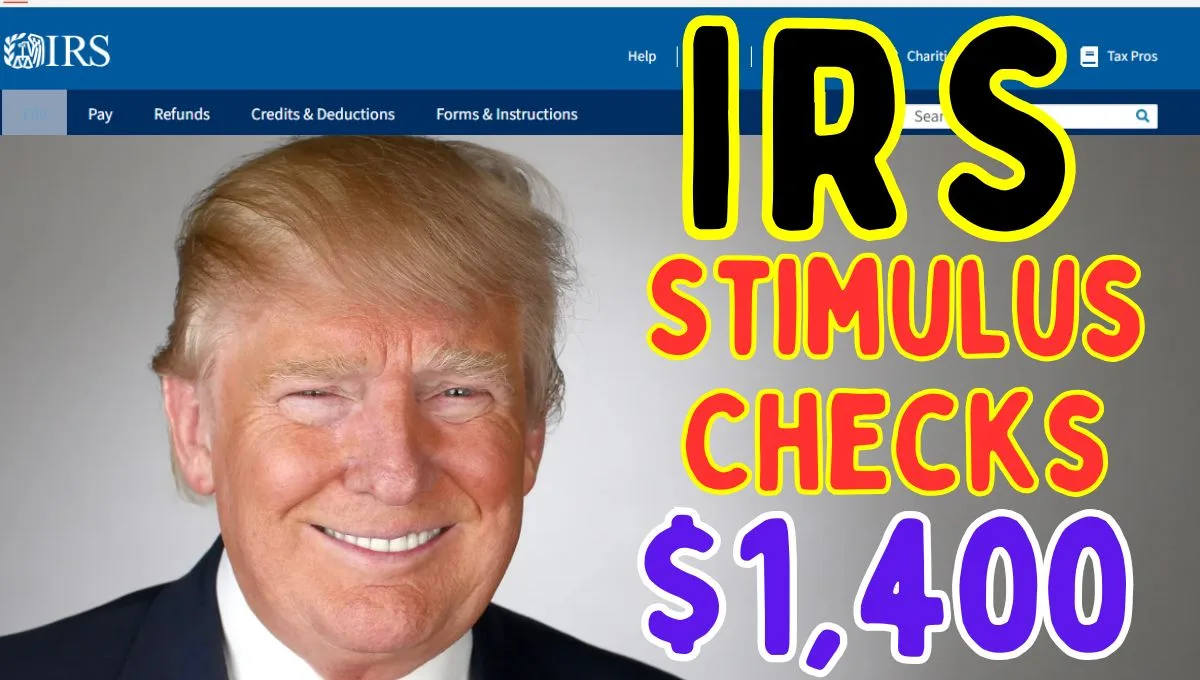The U.S. government is sending out stimulus payments to over a million Americans. These payments, worth up to $1,400, are a financial boost for those who did not receive the Economic Impact Payments (EIP) during the COVID-19 pandemic. The payments are being distributed by the IRS under the Recovery Rebate Credit (RRC) program. Here’s everything you need to know about the new stimulus checks and how they can benefit you.
Why This Matters
Many Americans are getting a much-needed financial lift just after Christmas, thanks to the IRS sending out delayed stimulus payments. Initially introduced to help Americans during the COVID pandemic, these payments had been missed by some taxpayers. Now, the IRS is making up for the delay, offering checks worth up to $1,400 to those who missed out. The news brings a sense of relief, especially as many people are dealing with post-holiday expenses.
What’s Happening
The new payments, known as the Recovery Rebate Credit (RRC), are being issued to eligible taxpayers who missed out on the federal stimulus checks they were supposed to receive in 2021. These payments are meant for individuals who filed their 2021 tax returns but failed to claim the economic relief they were eligible for.
According to the IRS, “Qualified taxpayers are those who filed a 2021 tax return, but where the data field for the Recovery Rebate Credit was left blank or was filled out as $0 when the taxpayer was actually eligible for the credit.”
These payments were originally part of the COVID-era stimulus plan that began in 2020. Now, after several delays, the IRS is sending these payments out, and they are expected to reach eligible taxpayers by late January 2025.
How It Works
The stimulus payments are automatically deposited into bank accounts or sent through paper checks. Along with the payment, recipients will also receive a separate letter detailing the payment information. The IRS is simplifying the process by sending these payments without requiring taxpayers to file an amended tax return, making it easier for those who missed out on the initial stimulus checks.
What People Are Saying
On social media platforms like X (formerly Twitter), many Americans have been sharing their surprise and excitement about receiving these long-awaited stimulus payments.
One user, Rishab, tweeted on January 8: “Bruh I just got a stimulus check in the mail because I never got one during COVID lmao. I’ll def take it.”
Another user, Stoogie, shared a photo of a letter marked “Not a bill or an advertisement,” writing: “It is 2025 and I just got a COVID stimulus check in the mail.”
Some users, like ISA, even questioned if others were receiving the checks too: “Anybody else get a stimulus check recently cus I just got one outta nowhere.”
What the IRS Is Saying
IRS Commissioner Danny Werfel emphasized the agency’s efforts to help taxpayers. He stated, “The IRS continues to work hard to make improvements and help taxpayers. These payments are an example of our commitment to go the extra mile for taxpayers.”
Werfel added that after reviewing their internal data, the IRS realized that one million taxpayers missed out on claiming the Recovery Rebate Credit when they were actually eligible. To make the process easier, the IRS has automatically sent out payments to those taxpayers. This way, they won’t need to go through the complicated process of filing an amended tax return to receive their payments.
Next Steps for Taxpayers
The IRS has reminded taxpayers who have not yet filed their 2021 tax returns that they may still be eligible for the Recovery Rebate Credit if they file by April 15, 2025. Filing a tax return is essential to receiving the credit, even if the taxpayer had little to no income during that time.
Key Takeaways
- Stimulus payments worth up to $1,400 are being sent out by the IRS to people who missed out on the Economic Impact Payments (EIP).
- These payments are part of the Recovery Rebate Credit (RRC) program and are for those who didn’t claim their stimulus payments on their 2021 tax returns.
- The payments will be automatically deposited into bank accounts or sent by paper check.
- If you haven’t filed your 2021 tax return yet, you still have time to claim the Recovery Rebate Credit by filing by April 15, 2025.
Disclaimer – Our team has carefully fact-checked this article to make sure it’s accurate and free from any misinformation. We’re dedicated to keeping our content honest and reliable for our readers.








